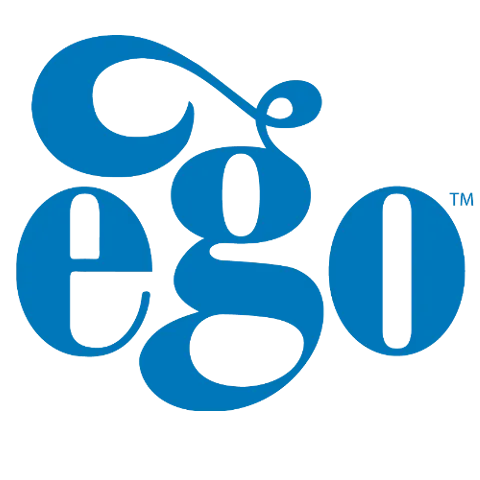预约演示
更新于:2025-05-07
Proctitis
直肠炎
更新于:2025-05-07
基本信息
别名 PROCTITIS、Proctitides、Proctitis + [15] |
简介 INFLAMMATION of the MUCOUS MEMBRANE of the RECTUM, the distal end of the large intestine (INTESTINE, LARGE). |
关联
17
项与 直肠炎 相关的药物作用机制 GR激动剂 [+1] |
非在研适应症- |
最高研发阶段批准上市 |
首次获批国家/地区 澳大利亚 |
首次获批日期2005-02-24 |
靶点 |
作用机制 rpoB抑制剂 |
原研机构 |
非在研适应症 |
最高研发阶段批准上市 |
首次获批国家/地区 英国 |
首次获批日期2000-02-01 |
靶点 |
作用机制 CysLT拮抗剂 |
最高研发阶段批准上市 |
首次获批国家/地区 美国 |
首次获批日期1998-02-20 |
100
项与 直肠炎 相关的临床试验NCT06133387
PARADIGM Study: Prospective Assessment of a Robotic Assisted Device in Gastrointestinal Medicine - En Bloc Trial With the EndoQuest Endoluminal Surgical (ELS) System
The objective of this study is to evaluate the safety and effectiveness of the Endoluminal Surgical (ELS) System in subjects undergoing specified transanal endoluminal procedures in the rectum and sigmoid colon. Subjects will undergo endoscopic submucosal dissection (ESD), with or without closure at the discretion of the Investigator, of benign lesions in the rectum and sigmoid colon.
The safety and effectiveness outcomes will be assessed intraoperatively and postoperatively at discharge and Days 7 and 30.
The safety and effectiveness outcomes will be assessed intraoperatively and postoperatively at discharge and Days 7 and 30.
开始日期2025-04-01 |
申办/合作机构 |
NCT06925607
A Phase l Clinical Study Evaluating the Distribution and Dynamic Behavior of Nuclide Labeled TH-SC01 Cells in Vivo in Patients With Radiation Proctitis
A Phase l clinical study evaluating the distribution and dynamic behavior of Nuclide labeled TH-SC01 cells in vivo in patients with Radiation proctitis
开始日期2025-04-01 |
申办/合作机构 |
NCT06837597
Jianzhong Qushi Formula for Treating Chronic Radiation Induced Proctitis : a Multicenter, Prospective, Randomized Controlled Clinical Trial
This study is a multicenter, randomized, double-blind, placebo-controlled trial. Patients diagnosed as CRP and without TCM history will be enrolled and randomly assigned to either the treatment group (receiving standard care plus Jianzhong Qushi Formula, 100 ml bid, *28days) or the control group (receiving standard care plus placebo 100 ml bid, *28days). All of the patients received both The primary endpoint is the clinical response rate, defined as fulfilling one of the following, RTOG grade reduction, ① RTOG/EORTC grade reduction; ② ≥1 symptom downgraded by CTCAE v5.0; ③ Symptom improvement according to TCM symptom standards .The secondary endpoints included TCM syndrome score reduction rate, LENT/SOMA score changes, changes in gut microbiota, quality of life(QoL) , etc. Totally, 168 patients (84 in each group) will be enrolled.
开始日期2025-03-15 |
申办/合作机构 |
100 项与 直肠炎 相关的临床结果
登录后查看更多信息
100 项与 直肠炎 相关的转化医学
登录后查看更多信息
0 项与 直肠炎 相关的专利(医药)
登录后查看更多信息
4,967
项与 直肠炎 相关的文献(医药)2025-12-01·Techniques in Coloproctology
Risk factors for rectal perforation during presacral cyst removal: a comparison between transabdominal, perineal, and combined surgical approaches
Article
作者: Barkhatov, S ; Safyanov, L ; He, M ; Shlyk, D ; Balaban, V ; Tsarkov, P
2025-07-01·Radiotherapy and Oncology
Safety and quality of life of PSMA-PET- and MRI-based focal dose escalated radiotherapy for intermediate- and high-risk prostate cancer: Primary endpoint analysis of the bi-centric phase II HypoFocal trial (ARO2020-01)
Article
作者: Sigle, August ; Kamps, Marius ; Zamboglou, Constantinos ; Toncheva, Paolina ; Mix, Michael ; Zschaeck, Sebastian ; Kirste, Simon ; Grosu, Anca L ; Sprave, Tanja ; Ghadjar, Pirus ; Gratzke, Christian ; Bürkle, Sophia L ; Spohn, Simon K B ; Brumberg, Joachim ; Adebahr, Sonja ; Baltas, Dimos ; Bamberg, Fabian ; Engel, Hannes ; Gainey, Mark ; Jilg, Cordula ; Freitag, Martin T
2025-06-01·Gynecologic Oncology
Reduced symptoms of late radiation tissue injury of the vagina after treatment with hyperbaric oxygen therapy: A retrospective analysis of 19 patients
Article
作者: Schuur-Van't Hof, N ; Lansdorp, C A ; Möring, M M ; van Beekhuizen, H J ; Valkenburg, A C
101
项与 直肠炎 相关的新闻(医药)2025-05-01
前列腺癌治疗过程中,放疗与手术并列作为重要的局部治疗手段。但放射性损伤可能影响患者生活质量。本文结合最新研究和临床实践,梳理放射性损伤的预防策略及处理要点。01 放射性损伤的预防策略精准定位与放疗计划优化前列腺癌治疗过程中,放疗与手术并列作为重要的局部治疗手段。但放射性损伤可能影响患者生活质量。本文结合最新研究和临床实践,梳理放射性损伤的预防策略及处理要点。操作要点:定位及放疗前要求患者排空直肠、适度充盈膀胱(建议治疗前1小时饮水250-300ml),且尽量做到每次保持一致状态;有条件的话,可考虑采用前列腺直肠隔离技术进一步降低直肠受量。水化与饮食管理心、肾功能正常的患者,建议每日饮水量≥2000ml,维持尿量稀释以保护膀胱黏膜。饮食建议:高蛋白、高维生素(如维生素C/E),避免辛辣、产气食物(如牛奶、豆类)。功能锻炼与生活方式干预指导患者进行膀胱训练(定时排尿、延长排尿间隔),规律进行适当的盆底肌功能锻炼(如凯格尔运动),可帮助预防和改善尿失禁症状。鼓励适度有氧运动(如散步、游泳)以增强体质,降低疲劳感。02 放射性损伤的处理原则泌尿系统损伤(放射性膀胱炎)症状尿频、尿急、血尿等。大多数患者可自愈。生活方式多饮水稀释尿液,避免辛辣食物及憋尿。减少增加腹压的动作(如提重物、剧烈咳嗽)。纠正、避免便秘。治疗方法口服维生素C/K增强血管强度,严重出血使用止血敏或前列腺素类药物。导尿管膀胱冲洗。膀胱灌注凝血酶、硝酸银或去甲肾上腺素。高压氧治疗(HBOT):促进血管新生和黏膜修复,适用于持续性出血。髂内动脉栓塞控制大出血,尿流改道。泌尿系统损伤(尿失禁)生活方式避免摄入咖啡、酒精等利尿物质,控制饮水量(少量多次)。减少增加腹压的动作(如提重物、剧烈咳嗽)。保守治疗盆底肌康复训练(Kegel运动)每日3~4组收缩-放松训练(每组10~15次),增强尿道括约肌力量。药物治疗抗胆碱药(如索利那新),减少膀胱过度活动。α受体阻滞剂(如坦索罗辛),松弛膀胱颈平滑肌,改善排尿阻力。进阶方案生物反馈电刺激治疗,提高训练效率。肠道损伤(放射性直肠炎)症状腹泻、里急后重、便血。饮食调整放疗期间推荐低纤维、低脂、高蛋白饮食,避免辛辣、油腻食物;维持肠道通畅。便后温水清洁肛周,使用皮肤保护剂(如氧化锌软膏)预防肛周皮肤损伤。药物治疗抗炎与黏膜修复:可应用美沙拉嗪、柳氮磺胺吡啶抑制炎症反应;瑞巴派特灌肠促进黏膜修复。止血与症状控制:沙利度胺对顽固性出血有效;止泻药(如洛哌丁胺)缓解腹泻。调节菌群:双歧杆菌等益生菌制剂可维持肠道菌群平衡,减轻炎症反应。局部治疗灌肠疗法:丁酸钠、短链脂肪酸灌肠减轻黏膜炎症;激素灌肠(如氢化可的松)短期缓解急性症状。内镜下治疗:氩离子凝固术(APC)用于止血和修复溃疡;福尔马林局部烧灼治疗顽固性出血,需在内镜引导下操作以避免并发症。高压氧治疗(HBOT)温和、有效的治疗方式。通过提高组织氧分压,促进血管新生和黏膜修复,尤其适用于慢性放射性直肠炎。皮肤反应与骨髓抑制皮肤反应干性脱皮时使用无刺激性润肤剂,湿性皮炎采用银离子敷料。骨髓抑制每周监测血常规,医生根据具体情况决定药物治疗策略。远期并发症管理尿道狭窄/膀胱挛缩定期尿流率检查,必要时行尿道扩张术。性功能障碍早期心理干预,PDE5抑制剂改善勃起功能。03 多学科协作与随访放疗中联合营养科等多学科制定个体化饮食及生活方式建议,心理科疏导焦虑情绪。放疗后放疗后1个月、2年内每3个月、5年内每6个月进行复查,之后每年复查。如PSA快速上升或生化失败,需进行影像学检查。在肿瘤学定期复查的同时,须关注患者的晚期毒副反应。04 结 语大多数前列腺癌患者可通过放疗、手术、药物治疗等综合治疗手段得以治愈。随着前列腺癌患者生存期的逐渐延长,治疗相关毒副反应的预防与治疗成为本领域的研究热点。北大医院泌尿肿瘤综合治疗团队通过精准放疗技术、全程健康管理及生活方式指导,不断降低前列腺癌治疗相关毒副反应的发生概率,希望通过我们的努力可以持续改善患者长期生活质量,让前列腺癌患者活得更长、活得更好!*本文内容综合自国内外前列腺癌放疗指南及临床研究。图 文:李山湜审 阅:李洪振审 核:放疗科
放射疗法
2025-01-15
溃疡性结肠炎(UC)是一种慢性炎症性肠病(IBD)会对患者的生活质量产生负面影响。尽管已有明确的轻中度UC管理指南,但仍存有为满足的需求。
近期,《国际专家共识:轻至中度溃疡性结肠炎的实践管理》发布,15条意见达成共识,涉及治疗持续时间、监测、优化以及安全行等多方面。
1. 建议口服5-ASA(2.0-4.8g/天)联合局部5-ASA(栓剂1g/天-直肠炎,≥1g/天-左半UC或全结肠炎)8周用于诱导缓解
2. 诱导治疗反应 应通过临床以及粪便钙卫蛋白进行监测
3. 5-ASA诱导治疗8-12周后测定粪便钙卫蛋白
4. 5-ASA诱导治疗后达到临床反应的患者,建议每3-6个月监测一次粪便钙卫蛋白
5. 若治疗2-4周后反应不足,建议优化药物治疗
6. 对于诱导治疗有反应的患者,建议以维持剂量(2.0-2.4 g/天)继续口服5-ASA治疗
7. 对于诱导治疗无应答的患者,推荐布地奈德MMX (9mg /天)作为8周的附加治疗
8. 建议在开始5-ASA治疗的6 - 12个月内进行内窥镜检查
9. 建议每日一次口服5-ASA以提高治疗依从性
10. 建议所有接受口服5-ASA治疗的患者每6个月监测一次肾功能
11. 对于临床、生化、超声或内镜下出现疾病复发的患者,建议优化口服5-ASA(≥4 g/天),持续8周,并增加局部5-ASA
12. 对于优化的5-ASA治疗无反应的患者,建议在开始类固醇治疗前进行粪便检查以排除肠道感染
13. 对于口服5-ASA优化后有反应(≥4 g/天)并在降低剂量(<4 g/天)出现反应丧失的患者,5-ASA应再次升高剂量(≥4 g/天)并保持稳定剂量
14. 建议在优化治疗后6-12个月进行内窥镜评估
15. 口服5-ASA应继续作为长期维持治疗,以预防结直肠癌的风险
【参考文献】
D'Amico F, Magro F, Dignass A, Al Awadhi S, Gutierrez Casbas A, Queiroz NSF, Rydzewska G, Duk Ye B, Ran Z, Hart A, Jairath V, Fiorino G, Peyrin-Biroulet L, Danese S. Practical management of mild-to-moderate ulcerative colitis: an international expert consensus. Expert Rev Gastroenterol Hepatol. 2024 Aug;18(8):421-430. doi: 10.1080/17474124.2024.2397650. Epub 2024 Sep 3. PMID: 39225555.
Document Number: ETI-CN-001167
有效截止日期:2027年1月1日
声 明
本视频/资讯/文章是由博福益普生医学团队编辑/医疗卫生专业人士撰写提供。以上内容仅限医疗卫生专业人士学术交流使用,不用于任何推广目的,且不能以任何方式取代专业的医疗指导,也不应被视为诊疗建议。
更多精彩内容
请持续关注Mayoly消化界 ✦ ✦ ✦ ✦ ✦
临床结果
2024-12-30
点击蓝字,关注我们
中国前列腺癌研究协作组. 前列腺癌药物去势治疗随访管理中国专家共识(2024版)[J]. 中华肿瘤杂志, 2024, 46(4):285-295. DOI:10.3760/cma.j.cn112152-20240206-00067.
点击此处 阅读/下载pdf原文
摘 要
随着诊疗技术的进步,前列腺癌患者的5年生存率显著提升,前列腺癌进入慢性疾病管理时代。雄激素剥夺治疗是晚期前列腺癌患者的基石治疗方案,并贯穿患者治疗的各阶段。前列腺癌药物去势治疗后的疾病进展、治疗相关不良反应以及相关并发症已成为前列腺癌长期管理的一大难题,影响患者的生存及生活质量。除了在诊断和治疗过程中需要注重前列腺癌的疾病管理,更应该密切随访药物去势治疗后患者的整体情况,尤其对于处于疾病治疗关键阶段的患者,应在疾病重要节点(疾病阶段起始点和治疗切换点)监测睾酮或其他指标,避免错过最佳治疗窗口期。前列腺癌随访管理应该兼顾疾病本身治疗阶段特点(疾病分期、既往症状、预后因素及治疗方案)和患者自身诉求,定制个性化的随访策略,更好地提高患者治疗依从性,改善预后。目前中国尚缺乏前列腺癌患者药物去势治疗后随访及生活质量管理的指南或共识,为此,中国前列腺癌研究协作组组织国内相关专家制定了前列腺癌药物去势治疗随访管理中国专家共识(2024版),以期为接受药物去势治疗前列腺癌患者的随访及生活管理提供参考,进一步改善中国前列腺癌患者的预后及生活质量。
【关键词】前列腺肿瘤;药物去势;随访;生活质量;共识
在全球范围内,前列腺癌作为男性的第2大常见肿瘤,已成为一项重大的公共健康问题。随着医学诊疗技术的进步以及前列腺癌早筛意识的不断普及,前列腺癌患者的5年生存率显著改善。美国癌症协会发布的2023年恶性肿瘤统计数据显示,美国前列腺癌患者的5年相对生存率已达97.0%,仅次于甲状腺癌。中国前列腺癌患者的5年生存率虽然与美国存在差距,但2012—2015年中国前列腺癌患者的年龄标化5年相对生存率也已从2003—2005年的53.8%提高至66.4%。生存时间的延长预示前列腺癌进入慢性疾病管理阶段。在长期的治疗和康复过程中,患者的生活质量、疾病认知、心理状态等问题应在随访期间给予相应的支持和指导。
随访是前列腺癌疾病管理的关键环节。通过随访可以评估前列腺癌患者短期及长期肿瘤结局,提高患者对病情的认知,确保治疗依从性;医师可以定期了解患者的治疗效果和病情进展,以便在出现疾病临床进展时指导进一步的治疗,监测治疗的不良反应以及并发症,关注患者治疗体验及生活质量并进行相关心理支持。在前列腺癌的疾病管理中,随访策略的制定不仅要考虑患者具体情况,也需要根据疾病本身的阶段性特点进行个性化随访,从而更精准地达到随访目的。
目前,雄激素剥夺治疗(androgen deprivation therapy,ADT)是除早期前列腺癌外的多个治疗阶段的基石性方案,尤其是局部晚期和转移性前列腺癌阶段。前列腺癌患者经ADT后,因雄激素水平下降会导致潮热、性功能障碍、骨质疏松和骨折风险升高、认知改变和抑郁等不良反应,也影响患者的生理和心理健康,从而导致生活质量下降。因此,在长期的ADT过程中,疾病治疗关键阶段的患者应在疾病重要节点(疾病阶段起始点和治疗切换点)密切监测睾酮或其他指标,避免错过最佳治疗窗口期。前列腺癌患者应坚持定期规范随访,临床医师也可及时了解病情变化,完善前列腺癌的全程管理。然而,相较于欧美发达国家完善的随访要求,当前我国前列腺癌的随访情况仍有一定的不足之处,失访率较高,主要体现在:(1)当前对于前列腺癌提倡个体化治疗,而针对不同疾病阶段缺乏个体化的随访策略指导;(2)患者自身对疾病认知不到位,对既往病情描述不清或部分遗忘,或因经济、地域等问题,导致自主随访意识薄弱等;(3)根据患者的具体病情,较长的治疗间隔可能会对患者的随访管理构成挑战,增加患者错过预定复诊和后续治疗的风险。
制定严密的随访计划不但可及时监测前列腺癌患者接受ADT的疾病进展,还可通过对不良反应及伴随疾病的管理提高患者生存及生活质量。前列腺癌患者的随访应兼顾疾病本身治疗阶段特点(疾病分期、既往症状、预后因素及治疗方案)和患者自身诉求,定制个性化的随访策略,更好地提高患者治疗依从性,改善患者预后。但是,国内尚缺乏探讨前列腺癌药物去势治疗后随访及生活管理的指南或共识。为此,中国前列腺癌研究协作组组织国内相关专家制定了本共识,以期为前列腺癌患者的随访及生活管理提供参考。
一
识制定方法
1. 共识形成过程:该共识是由中国前列腺癌研究协作组制定,由42位专家组成。2023年12月线上召开了第1次共识讨论会议,工作组审查并讨论了中国前列腺癌药物去势治疗随访管理的现有证据,并根据现有的临床证据和工作组成员的集体经验形成共识建议初稿。根据工作组成员充分协商达成的一致意见修订了相关建议,最后形成共识终稿。
2. 文献检索:检索词有“前列腺癌”、“随访”、“生活管理”、“药物去势治疗”、“新辅助治疗”、“转移性前列腺癌”,“prostate cancer”、“follow-up”、“medical castration”、“quality of life”、“neoadjuvant therapy”、“metastatic prostate cancer”。数据库包括PubMed、EMBASE、谷歌学术、中国知网、万方数据知识服务平台、维普网、中华医学期刊全文数据库。纳入的标准为随机对照试验、队列研究、横断面研究、病例报道、系统综述、Meta分析、临床实践指南、专家共识。
二
前列腺癌疾病治疗关键阶段
在前列腺癌疾病发展过程中存在治疗关键阶段,会严重影响患者治疗及预后。本共识提出以下5个前列腺癌药物去势治疗关键阶段,分别为新辅助治疗阶段、高危前列腺癌起始辅助治疗6个月内、生化复发(biochemical recurrence,BCR)阶段、新诊断转移性激素敏感性前列腺癌(metastatic hormone sensitive prostate cancer,mHSPC)初始药物治疗后前6个月以及转移性去势抵抗性前列腺癌(metastatic castration-resistant prostate cancer,mCRPC)阶段。处于疾病治疗关键阶段的患者需要更为密切的随访频率,应按照每个月频率回院随访,以便及时发现疾病进展,更换治疗方案,提高患者治疗依从性。
1. 新辅助治疗阶段:新辅助治疗目前虽然未被纳入国际指南推荐,但在临床研究和实践中采用新辅助治疗改善局限及局部晚期前列腺癌患者预后仍是目前临床关注的热点。目前临床中常用的新辅助治疗方案包括ADT单药治疗、ADT联合新型内分泌治疗及ADT联合化疗。
在前列腺根治术或根治性放疗前进行新辅助治疗可以有效缩小肿瘤体积、减少局部肿瘤负荷、降低术前肿瘤临床和病理分期、改善其他病理不良结局(如淋巴结阳性率、手术切缘阳性率等),为实施根治性手术提供机会,但目前尚无证据表明患者会有预后获益。
在新辅助治疗前,为确保患者的依从性及后续治疗的连续性,应该对患者进行全面系统的评估。新辅助治疗后,需根据前列腺特异性抗原(prostate-specific antigen,PSA)水平或影像学检查评估患者是否具备手术指征。同时,从患者需求角度来看,患者对肿瘤的缓解情况及指标的控制情况会更为关切,因此会倾向每个月回院随访,增加治疗依从性,获得最佳手术时机。
2. 高危前列腺癌起始辅助治疗6个月内:与接受根治性治疗的低危或中危前列腺癌患者相比,高危前列腺癌患者发生BCR、转移和恶性肿瘤相关死亡的风险更高。因此,对于分期较晚、存在不良病理特征及较多BCR危险因素等的高危前列腺癌患者,根治性治疗后应进行规范化随访,有利于及时发现BCR征象及转移情况,从而在适当情况下进一步给予个性化辅助治疗或综合干预。
虽然以放疗为基础的治疗是目前国际指南推荐的辅助治疗方案,但鉴于经济状况、治疗便捷性和可及性等因素,ADT常作为我国高危前列腺癌患者根治性治疗后的主要辅助治疗手段,其目的在于控制前列腺癌进展。目前局限高危患者的术后辅助治疗时机和时间存在争议,但由于患者术后6周内进行内分泌治疗会影响根治术效果的判断,因此术后6周内不建议行内分泌治疗。高危前列腺癌患者在行辅助内分泌治疗初期,应及时关注切缘残余病灶及微小转移灶的治疗效果(值得注意的是,如果PSA降到极低水平或检测不到,则无法评估潜在病灶)以及患者血清睾酮水平的变化,建议每1~3个月回院随访1次。
3. BCR阶段:前列腺癌根治术后,仍有15%~45%的患者会出现BCR。BCR是提示前列腺癌根治术后复发或转移的重要依据之一,也是考虑是否需要调整治疗策略的重要节点。若患者在根治术后出现BCR,应结合影像学检查进行全面评估,以判断是否已发生临床复发。而对于已经发生BCR而没有检测到的患者,可能错过早期挽救性治疗时机,进而影响生活质量甚至预期寿命。因此对于前列腺癌根治术后患者,应重视BCR的早期发现、正确评估和规范化随访干预,以改善患者的远期健康结局。前列腺根治术后BCR患者进行风险分层有助于制定个体化治疗方案。EMBARK研究表明,高危BCR患者接受ADT联合新型内分泌治疗可显著改善生存。一项多中心研究结果支持高危BCR患者接受早期挽救性放疗,低危BCR患者进行定期监测。此外,PSA持续(定义为术后PSA≥0.1 ng/ml)是前列腺癌根治术后复发的不良预后因素,术后应密切监测PSA,以评估是否出现PSA持续。
4. 新诊断mHSPC初始药物治疗后前6个月:转移性前列腺癌是严重影响患者预后的重要疾病阶段。根据2023年美国国家癌症研究所统计数据,局限性前列腺癌患者的5年相对生存率已接近100%,而发生远处转移的前列腺癌患者5年相对生存率只有34.1%。我国每年新诊断的mHSPC比例高达54%,疾病负担较重。作为新兴的系统治疗方案,以ADT为基础的二联或三联治疗方案目前临床应用也较为普遍。不同联合治疗方案的快速发展在提高患者获益的同时也使患者管理更加复杂。在ADT联合治疗的早期,可能会存在睾酮和PSA水平的波动、骨“闪烁”的发生以及点火效应。此外,新型联合用药方案引起的药物不良反应和经济负担对患者的随访管理影响也应引起充分关注。mHSPC作为延缓疾病进展的mCRPC关键治疗窗口应引起足够重视。
5. mCRPC阶段:mCRPC是前列腺癌特征性的疾病阶段,也是临床治疗策略的重要切换点。mCRPC具有高度侵袭性,整体预后较差,中位生存时间仅为17.5~34.7个月。在mCRPC阶段,患者应在维持去势治疗的基础上,开启后续治疗。因此,在mCRPC阶段的患者依然要密切监测睾酮水平,使其维持在去势水平,其随访频率应根据下一步的治疗方式而定。此外,超过70%的mCRPC患者会出现骨转移,而骨转移还会引起病理性骨折、脊髓压迫等骨相关事件(skeletal-related events,SREs),患者出院后仍需面对诸多骨相关问题,严重影响生活质量。因此,在mCRPC阶段,推荐在确诊前列腺癌骨转移时即考虑应用地舒单抗等骨保护剂,以降低或延缓SREs的发生。
mCRPC阶段治疗的目标主要是延长生存,改善生活质量。在治疗期间医师需让患者定期密切随访,随访时间间隔应根据患者主诉及具体治疗方式进行调整。
前列腺癌药物去势治疗关键阶段对前列腺癌患者的生存质量及生活影响较大,应对处于此阶段的患者进行专业、规范、密切、全程的个性化随访。从患者需求角度出发,规范的个性化随访不仅有利于监测前列腺癌疾病发展进程,还可以在肿瘤出现进展时及时接受更合适的治疗,从而获得更好的预后。从医师角度出发,密切随访有助于直观了解患者的治疗效果、病情进展以及心理情绪健康,在恰当时机调整治疗策略。此外,密切随访还能提高患者及家属对前列腺癌的认识,增强患者治疗信心及对疾病自我管理的意识。
三
前列腺癌药物去势治疗后的随访及生活质量管理
去势治疗包括手术去势治疗和药物去势治疗,因手术去势治疗具有不可逆性,对患者心理造成影响,从而影响生活质量,故一般首选药物去势治疗。前列腺癌药物去势治疗后的随访策略必须根据疾病分期、既往症状、预后因素和既往治疗进行个体化随访。经药物去势治疗的前列腺癌患者应定期随访,建议药物去势治疗开始后前6个月应每月监测PSA水平,待疾病稳定后可至少每3~6个月监测血清PSA、睾酮水平和肝肾功能等。骨密度监测频率主要基于骨折风险来决定,骨折高危患者一般推荐给予骨保护剂,1~2年复查骨密度。而对于药物不良反应的监测,其随访频率应该更高,至少每1~3个月随访1次。由于ADT的预后结局差异较大,因此包括实验室指标和生活质量在内的结构化随访可能对患者和治疗医师更加有价值。
(一)围手术期的随访
1. 新辅助治疗的随访内容
前列腺癌新辅助治疗后应综合评估生化指标、影像学以及患者报告临床结局三部分内容。
生化指标监测主要包括PSA、睾酮、血常规、肝肾功能以及血电解质等,并建议在同一实验室监测从而有助于准确评估治疗疗效。目前,PSA是新辅助治疗阶段评价前列腺癌疗效和预后的重要指标,其下降程度和水平与生存密切相关。建议在新辅助治疗之前以及新辅助治疗期间每1~3个月检测PSA水平,并通过临床症状、影像学检查等评估现有治疗是否有效,及时调整治疗方案。睾酮水平的监测可预测疾病进展风险并评估患者生存情况,其监测频率与PSA保持一致,此外,对于其他生化指标,如血常规、碱性磷酸酶、血电解质等也应在治疗期间每隔1~3个月或出现相关症状或疾病进展时监测。
接受新辅助治疗的前列腺癌患者随访期间是否要进行影像学评估应该视PSA下降情况及疾病进展而定。如治疗期间出现PSA水平升高或症状加重,则建议根据新辅助治疗前的影像学情况进行以盆腔MRI检查或以正电子发射计算机断层显像(positron emission tomography-computed tomography,PET-CT)为代表的全身影像学评估,也鼓励使用包括前列腺特异性膜抗原(prostate specific membrane antigen,PSMA)-PET-CT或PSMA-PET-MRI、MRI等能够发现肿瘤早期复发或转移的新兴检测技术,更为精准地评估患者病情。
患者报告临床结局是从患者自我角度报告自身健康状况、功能状态以及治疗感受,从而评价治疗效果的重要指标。行新辅助治疗的患者大部分为高危局限性、局部进展期以及低转移负荷前列腺癌,虽然其临床症状不明显,但依然需要重视患者报告临床结局的记录与分析。
2. 根治性治疗后的随访内容
(1)根治性手术:接受前列腺根治术的患者术后应进行定期随访,尤其是高危、病理分期较高、存在较多BCR风险因素及不良病理特征的患者,更应加强术后规律随访,以便及时发现局部复发和转移,对病情进行恰当全面综合评估,及时干预,制定后续治疗方案。前列腺癌根治性治疗后的定期规律随访主要包括PSA和影像学检查以及关注并发症发生情况。
血清PSA水平的监测是前列腺癌随访的基本内容,根治性手术成功的患者在术后2个月PSA水平较低(<0.1 ng/ml),不易被检测到。根治术后规范的PSA水平的监测有助于及时发现BCR,并及时采取相应措施,避免延误治疗导致不良临床结局。《中国临床肿瘤学会(CSCO)前列腺癌诊疗指南2023》推荐PSA在治疗后前3年内每6个月随访1次,5年后至少每6~12个月随访1次。对于术后接受ADT辅助治疗的患者,应在治疗开始后的前6个月每个月同时监测睾酮及PSA水平,以证实治疗效果。
对于无BCR且无症状的根治术后患者,不需进行常规骨扫描和其他影像学检查。若发生PSA持续升高、存在不良病理结果或存在转移症状,可以采取影像学检查来评估是否发生复发转移。根治术后,PSA水平>0.2 ng/ml以及持续升高可作为BCR的依据。考虑发生BCR的患者应进行的影像学检查主要包括经直肠超声检查、MRI、CT、PET-CT,需要根据不同个体进行综合全面评估后,选择适当的检测手段。影像学检查可以检测到根治术后的局部或远处转移病灶,但检测灵敏度依赖于PSA。PSA<0.5 ng/ml,PSMA-PET-CT灵敏度最高,可用于确诊根治术后BCR患者。在欧洲泌尿外科协会指南指出,若PSA>0.2 ng/ml推荐行PSMA-PET-CT检查,若PSMA-PET-CT不可行,且PSA>1 ng/ml可行18F-Fluciclovine PET-CT 或 Choline PET-CT。若存在骨痛或者其他可能进展的症状,无论PSA是否升高,都应考虑行骨扫描或其他影像学检查。
术后尿失禁及性功能减退是前列腺癌根治术后常见的并发症。建议随访时对性功能及尿控功能进行评估,具体评估内容参考前列腺癌特异性生活质量评估量表。
(2)根治性放疗:根治性放疗不同于根治性手术,放疗后PSA变化规律、放疗相关不良反应等均与根治性手术有所差别,接受根治性放疗患者进行随访以评估前列腺癌治疗的效果、监测治疗并发症等。随访内容主要包括PSA监测、影像学检查(骨扫描、CT/MRI及PET-CT等)及治疗相关并发症等。
根治性放疗后,PSA下降缓慢,PSA可能在放疗结束超过3年后达到最低值。目前对于根治性放疗后PSA最低值的预后判断最佳截断值仍有争议,一般认为在3~5年后PSA水平最低值达到0.5 ng/ml的患者预后较好。
接受根治性放疗后影像学检查可参考根治性手术后随访相关内容,需要特别指出的是,若根治性放疗后需要活检,应该在放疗18个月以后进行。此外,接受根治性放疗后需关注患者治疗相关并发症的发生情况,尤其是放射性膀胱炎和放射性直肠炎等,以及患者恢复情况。
(二)转移性前列腺癌的随访
药物去势治疗常与其他药物联合用于转移性前列腺癌的治疗,需根据治疗方案制定随访计划,监测治疗效果,制定后续治疗方案。对于M1期前列腺癌患者,还需尊重患者的诉求制定随访频率。随访内容主要包括肿瘤控制情况(血清睾酮水平、PSA、影像学检查等)、治疗相关并发症、常见不良反应监测、临床症状进展等。
1. 肿瘤控制情况:经药物去势治疗的前列腺癌患者中仍有13%~38%难以达到去势水平(血清睾酮<50 ng/dl),并且在长期治疗期间,24%的患者出现暂时性睾酮水平突增(睾酮>50 ng/dl)。此外,在确认PSA升高和/或临床进展的患者中,也需通过评估血清睾酮水平来确认其去势抵抗状态。因此,为保证患者药物去势治疗期间睾酮能够达到并保持在去势水平、明确患者的去势抵抗状态,建议患者在药物去势治疗初期6个月内每个月检测1次睾酮水平,疾病控制稳定后每隔3~6个月检测1次睾酮水平。若随访检测中患者未达睾酮去势水平,应考虑更换其他激动剂、拮抗剂或睾丸切除术进行治疗。
药物去势治疗后的PSA水平影响患者预后,定期复查PSA也有助于及时明确患者病情,进而调整治疗策略。PSA的升高通常早于出现临床症状,药物去势治疗后可通过血清PSA评估疾病缓解情况。对于mHSPC患者,建议无症状和临床改善的患者每3~6个月监测1次PSA。根据临床症状和风险评估,可能需要更频繁地就诊。对于mCRPC患者,建议每4周监测1次PSA。
仅靠PSA监测不足以判断转移性前列腺癌的进展情况。对于接受药物去势治疗转移性的前列腺癌患者,即使PSA未升高,也有可能出现影像学进展,因此使用ADT的转移性前列腺癌患者也应进行常规影像学随访。推荐采用CT/MRI进行软组织及内脏转移灶评估,影像学的进展建议参考前列腺癌临床研究协作组(PCWG) 3标准进行判定。对于mHSPC患者,每6个月评估1次影像学检查;而mCRPC患者,建议前6个月每8周1次评估影像学检查,之后每12周1次。
前列腺癌是易出现骨转移的恶性肿瘤之一。骨扫描有助于评估骨转移程度。建议通过定期规律随访骨转移病灶及时预防SREs,改善SREs带来的不良影响。对于mHSPC患者,推荐每6或12个月行骨扫描、CT/MRI。建议mCRPC患者每隔3~6个月进行骨扫描、CT/MRI。若初次随访发现≥2个新病灶,需在发现新病灶后≥6周复查骨扫描进行确认,进展日期为初次随访时间,具体评估标准见表1。
2. 药物去势治疗相关并发症:药物去势治疗中较为严重的并发症主要为代谢综合征、心脑血管疾病、骨吸收以及心理健康问题。
接受药物去势治疗的患者罹患心血管疾病、高血压以及糖尿病的风险增加。在启动ADT前应详细询问患者有无糖尿病等代谢综合征病史以及心血管病史,并进行筛查;检查空腹血糖、糖化血红蛋白、甘油三酯、低密度脂蛋白等相关指标,对于合并糖尿病或心血管基础疾病者,应在ADT前咨询内分泌或心内科医师。在整个ADT期间,应每隔6~12个月再次评估。
长期药物去势治疗引起的骨丢失高于年龄相关的正常骨丢失,从而增加了转移性前列腺癌患者骨质疏松症和骨折的风险。在启动ADT前可考虑采用双能 X 线吸收法(dual-emission X-ray absorptiometry,DXA)骨密度测试仪器评估接受治疗患者的骨密度。接受ADT治疗的低骨折风险男性(基于FRAX算法)可考虑每2~3年进行DXA复查。对于骨质减少或有中度或高度骨折风险的男性,应给予骨保护剂,并可考虑每1~2年复查DXA骨密度,直到治疗停止。也可考虑定期监测维生素D和血钙水平,需要时常规补充维生素D和钙。
药物去势治疗同时也会影响患者的心理和认知健康,引起或加重抑郁焦虑等心理问题。此外药物去势治疗还可能与认知功能下降、痴呆或进展后的阿尔兹海默的发生有关。认知能力下降和疲劳可能在药物去势治疗开始后6个月内出现,但该情况会随时间推移而得到改善。因此,对转移性前列腺癌患者心理以及认知健康问题的关注应该是随访内容中的一个重要组成部分。
在各个疾病阶段接受药物去势治疗过程中,均应评估患者发生相关并发症的风险,及时监测与治疗。
3. 常见不良反应监测:转移性前列腺癌患者在去势治疗基础上常需联合其他新型内分泌治疗、化疗等其他创新型药物,可能引起肝肾功能异常、骨髓抑制等不良反应。定期监测不良反应有助于及时发现不良反应并给予相关干预措施,确保患者治疗依从性,提高随访率。中性粒细胞减少症和发热性中性粒细胞减少症(febrile neutropenia,FN)是化疗常见不良反应之一。ADT联合多西他赛治疗期间,应密切监测患者的血常规,用药后1周内复查,后每3~5 d复查,以便及早发现中性粒细胞减少症或FN。在ADT联合阿比特龙治疗期间,应注重加强对血电解质的随访。在治疗第1个月,需2周随访1次血电解质情况,后续可每4周随访1次。在应用PARP抑制剂时,应对其血液学不良反应引起充分重视,在治疗首个月应每周监测血常规指标,之后每月监测。
转移性前列腺癌患者药物去势治疗后每月至少检测1次肝肾功能及血常规,其他不良反应随访情况详见表2。
4. 临床症状进展:转移性前列腺癌的临床症状可能与实验室或影像学检查结果不符。因此,需要定期随访患者的临床症状,检查患者是否存在脊髓压迫的早期体征、骨折风险增加的骨组织病变以及泌尿系统并发症(输尿管梗阻、膀胱出口梗阻等)。当怀疑患者出现疾病进展时,需要对肿瘤进行重新分期并调整后续随访计划。
(三)生活质量结局
ADT药物作为前列腺癌治疗的基石,贯穿前列腺癌从局限期到转移期的所有疾病阶段。同时ADT及疾病所带来的不良反应使患者面临较多的躯体和心理问题,如药物去势治疗导致的不良反应涉及多个器官系统,影响患者的生理和心理健康,导致患者生活质量下降。在我国开展的一项促性腺激素释放激素激动剂(gonadotropin-releasing hormone agonist,GnRHa)治疗前列腺癌的现状调查结果显示,GnRHa的不良反应和长期注射引起的不适是影响患者生活质量的重要因素,可能造成患者依从性降低,进而影响患者预后。因此在前列腺癌的随访管理中不应只关注与疾病进展相关的指标,更应注重加强对于治疗并发症、不良反应、注射过程中的治疗体验等生活质量结局管理。
由于生活质量具有主观性,临床上很难评估。根据前列腺癌患者之间存在的一些共同特征,目前已开发并验证了专门评估前列腺癌特异性生活质量的量表(表3),包括欧洲癌症研究与治疗协作组(European Organization for Research and Treatment of Cancer,EORTC)QLQ-PR55量表、美国前列腺癌治疗功能评估(FACT-P)量表及UCLA- PCI 量表等。
国内外指南建议将改善患者生活质量作为前列腺癌的重要治疗目标,对于接受ADT的患者可通过运动、多学科康复、心理支持或采用可改善注射体验的治疗方案来改善生活质量。此外,间歇性ADT也可降低不良反应、维持患者生活质量。然而目前对间歇性和持续性ADT的优劣对比尚未达成共识,但有文献指出,对于低瘤负荷且无明显合并疾病和高危因素的患者,间歇性ADT的疗效与持续性ADT相当,但在维持生活质量方面更具有优势。不过也有研究显示,间歇性 ADT相比持续性ADT可能带来死亡风险的升高。因此,是否进行间歇或连续ADT必须根据患者的偏好、治疗对健康相关生活质量影响的预期和疾病状态进行个体化决策。
尽可能延长前列腺癌患者生存期的同时,也应关注患者生活质量的改善。本共识基于国内前列腺癌的随访现状,并综合了国内外相关指南或共识情况下,为前列腺癌患者药物去势治疗后的随访及生活质量管理提供了依据。在选择ADT方案时,临床医师不仅要考虑治疗效果,还应向患者解释每种治疗方案的潜在获益和风险,与患者沟通治疗常见不良反应及预防处理原则、注射过程中的感受及对生活质量的预期影响等,且应充分考虑患者的偏好并将其纳入治疗决策。但因现有研究的局限性,本共识意见仅作为临床参考。
参考文献略。
纸质版期刊订阅:中国邮政网上营业厅(https://11185.cn/)检索“中华肿瘤杂志”在出版前订购;或中华医学期刊网-期刊服务-期刊商城订购过刊。
本文编辑 | 殷宝侠
公众号 | 苏在明
滑动查看所有专家名单
专家组成员(按姓氏汉语拼音字母排序)
边家盛(山东省肿瘤医院泌尿外科)
陈惠庆(山西省肿瘤医院泌尿外科)
陈鹏(新疆维吾尔自治区肿瘤医院泌尿外科)
傅斌(南昌大学第一附属医院泌尿外科)
傅强(山东省立医院泌尿外科)
高旭(上海长海医院泌尿外科)
苟欣(重庆医科大学附属第一医院泌尿外科)
谷江(贵州医科大学附属医院泌尿外科)
郭剑明(复旦大学附属中山医院泌尿外科)
何朝宏(河南省肿瘤医院泌尿外科)
何志嵩(北京大学第一医院泌尿外科)
胡滨(辽宁省肿瘤医院泌尿外科)
胡志全(华中科技大学同济医学院附属同济医院泌尿外科)
金百冶(浙江大学医学院附属第一医院泌尿外科)
李磊(西安交通大学第一附属医院泌尿外科)
李长福(哈尔滨医科大学附属肿瘤医院泌尿外科)
梁朝朝(安徽医科大学附属第一医院泌尿外科)
廖洪(四川省肿瘤医院泌尿外科)
林天歆(中山大学孙逸仙纪念医院泌尿外科)
刘明(北京医院泌尿外科)
刘南(重庆大学附属肿瘤医院泌尿外科)
蒙清贵(广西医科大学附属肿瘤医院泌尿外科)
牛远杰(天津医科大学总医院泌尿外科)
齐琳(中南大学湘雅医院泌尿外科)
史本康(山东大学齐鲁医院泌尿外科)
涂新华(江西省肿瘤医院泌尿外科)
王保军(中国人民解放军总医院泌尿外科)
王春喜(吉林大学第一医院泌尿外科)
王启林(云南省肿瘤医院泌尿外科)
王增军(江苏省人民医院泌尿外科)
魏强(四川大学华西医院泌尿外科)
魏少忠(湖北省肿瘤医院泌尿外科)
肖峻(中国科学技术大学附属第一医院安徽省立医院泌尿外科)
邢金春(厦门大学附属第一医院泌尿外科)
徐万海(哈尔滨医科大学附属肿瘤医院泌尿外科)
叶定伟(复旦大学附属肿瘤医院泌尿外科)
岳中瑾(兰州大学第二医院泌尿外科)
张爱莉(河北医科大学第四医院泌尿外科)
章小平(华中科技大学同济医学院附属协和医院泌尿外科)
种铁(西安交通大学第二附属医院泌尿外科)
周芳坚(中山大学肿瘤防治中心泌尿外科)
朱绍兴(福建医科大学附属协和医院泌尿外科)
朱耀(复旦大学附属肿瘤医院泌尿外科)
邹青(江苏省肿瘤医院泌尿外科)
执笔人
朱耀(复旦大学附属肿瘤医院泌尿外科)
阅读原文:#泌尿生殖肿瘤# 合集
(来源:中华肿瘤杂志)
声 明
凡署名原创的文章版权属《肿瘤瞭望》所有,欢迎分享、转载。本文仅供医疗卫生专业人士了解最新医药资讯参考使用,不代表本平台观点。该等信息不能以任何方式取代专业的医疗指导,也不应被视为诊疗建议,如果该信息被用于资讯以外的目的,本站及作者不承担相关责任。
抗体药物偶联物
分析
对领域进行一次全面的分析。
登录
或

Eureka LS:
全新生物医药AI Agent 覆盖科研全链路,让突破性发现快人一步
立即开始免费试用!
智慧芽新药情报库是智慧芽专为生命科学人士构建的基于AI的创新药情报平台,助您全方位提升您的研发与决策效率。
立即开始数据试用!
智慧芽新药库数据也通过智慧芽数据服务平台,以API或者数据包形式对外开放,助您更加充分利用智慧芽新药情报信息。
生物序列数据库
生物药研发创新
免费使用
化学结构数据库
小分子化药研发创新
免费使用







